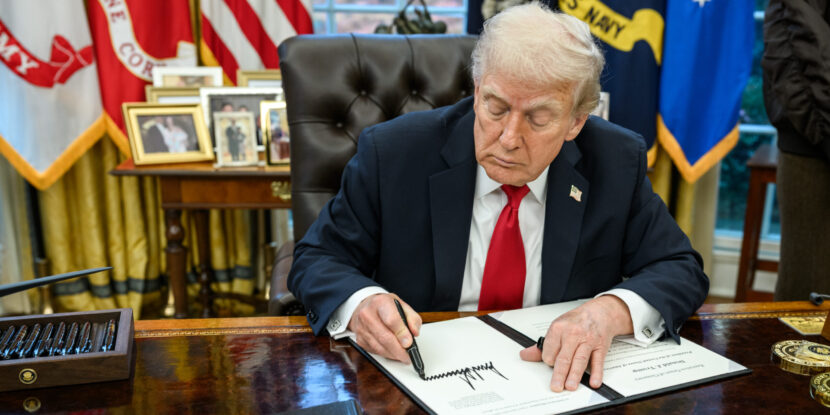❓WHAT HAPPENED: A federal appeals court ruled that President Donald J. Trump cannot use the Alien Enemies Act of 1798 to deport alleged Venezuelan gang members.
👤WHO WAS INVOLVED: President Trump, the Fifth Circuit Court of Appeals, and members of the Tren de Aragua gang.
📍WHEN & WHERE: The ruling was issued on Tuesday, September 3, 2025, in the United States.
💬KEY QUOTE: “A country’s encouraging its residents and citizens to enter this country illegally is not the modern-day equivalent of sending an armed, organized force to occupy, to disrupt, or to otherwise harm the United States,” the court wrote in its ruling.
🎯IMPACT: The decision blocks the Trump administration from using the Alien Enemies Act to deport illegal immigrants, though other legal avenues for deportation remain available.
A federal appeals court ruled on Tuesday that President Donald J. Trump cannot use the Alien Enemies Act of 1798 to deport Venezuelan illegal immigrant members of the Tren de Aragua (TdA) gang. The administration had invoked the 18th-century wartime law in March to deport 137 alleged gang members to El Salvador’s Terrorism Confinement Center (CECOT).
The law allows presidents to deport people from enemy countries during an “invasion or predatory incursion.” However, the Fifth Circuit Court of Appeals determined that the activities of the TdA gang do not constitute an “invasion” or “predatory incursion.” The court stated, “There is no finding that this mass immigration was an armed, organized force or forces.”
Since retaking office in January, the Trump administration has deported over 6,000 Venezuelans, including 238 sent to CECOT earlier this year. Family members and illegal immigrant advocates claim that many of those deported have no criminal record or gang ties—though evidence from the Department of Homeland Security (DHS) suggests otherwise.
The case originated with illegal immigrants detained in Texas who sued to block their deportation under the Alien Enemies Act. After the lower court dismissed the case, the Supreme Court intervened, ruling that the Fifth Circuit was wrong to dismiss the matter and that illegal immigrants had not been given adequate notice of their deportations.
Join Pulse+ to comment below, and receive exclusive e-mail analyses.



















